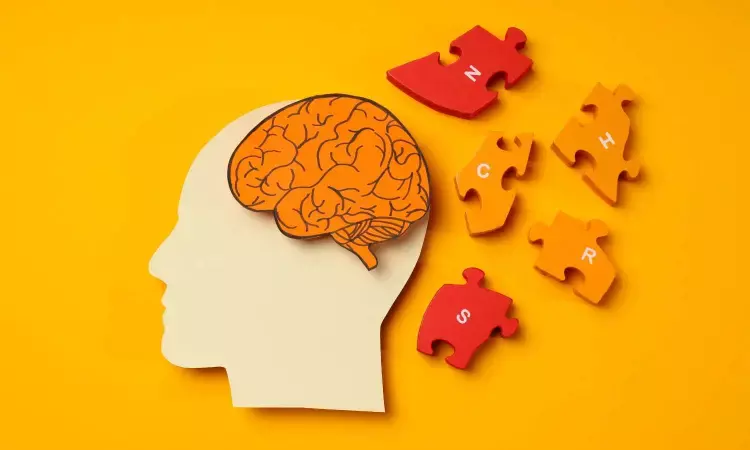- Home
- Medical news & Guidelines
- Anesthesiology
- Cardiology and CTVS
- Critical Care
- Dentistry
- Dermatology
- Diabetes and Endocrinology
- ENT
- Gastroenterology
- Medicine
- Nephrology
- Neurology
- Obstretics-Gynaecology
- Oncology
- Ophthalmology
- Orthopaedics
- Pediatrics-Neonatology
- Psychiatry
- Pulmonology
- Radiology
- Surgery
- Urology
- Laboratory Medicine
- Diet
- Nursing
- Paramedical
- Physiotherapy
- Health news
- Fact Check
- Bone Health Fact Check
- Brain Health Fact Check
- Cancer Related Fact Check
- Child Care Fact Check
- Dental and oral health fact check
- Diabetes and metabolic health fact check
- Diet and Nutrition Fact Check
- Eye and ENT Care Fact Check
- Fitness fact check
- Gut health fact check
- Heart health fact check
- Kidney health fact check
- Medical education fact check
- Men's health fact check
- Respiratory fact check
- Skin and hair care fact check
- Vaccine and Immunization fact check
- Women's health fact check
- AYUSH
- State News
- Andaman and Nicobar Islands
- Andhra Pradesh
- Arunachal Pradesh
- Assam
- Bihar
- Chandigarh
- Chattisgarh
- Dadra and Nagar Haveli
- Daman and Diu
- Delhi
- Goa
- Gujarat
- Haryana
- Himachal Pradesh
- Jammu & Kashmir
- Jharkhand
- Karnataka
- Kerala
- Ladakh
- Lakshadweep
- Madhya Pradesh
- Maharashtra
- Manipur
- Meghalaya
- Mizoram
- Nagaland
- Odisha
- Puducherry
- Punjab
- Rajasthan
- Sikkim
- Tamil Nadu
- Telangana
- Tripura
- Uttar Pradesh
- Uttrakhand
- West Bengal
- Medical Education
- Industry
Loss of Slow-Wave Sleep Linked to Increased Risk of Dementia: JAMA

A new study published in Journal of American Medical Association from the Framingham Heart Study found Slow-wave sleep (SWS) loss linked to dementia risk. This relationship is especially relevant in light of age and genetic susceptibility to Alzheimer's disease. The 17-year study, which included 346 adults 60 years of age or older, found strong evidence that alterations in SWS may be a modifiable risk factor for dementia.
Long recognized for its involvement in removing toxic proteins connected to Alzheimer's disease, slow wave sleep (SWS) is a deep sleep phase that supports multiple brain functions. Still, it was unclear how directly it related to the onset of dementia. In order to resolve this uncertainty, this study looked at how age and genetic factors affect SWS.
The research, conducted from 2020 to 2023, found that as participants aged, they experienced a gradual decline in SWS. On average, SWS percentage decreased by 0.6% per year over the study's 17-year period. More strikingly, those who exhibited a more rapid loss of SWS were associated with an increased risk of dementia.
Each percentage decrease in SWS per year was linked to a 27% rise in the risk of dementia. These findings remained consistent even after adjusting for variables such as age, sex, genetic factors (APOE ε4 allele), and the use of medications.
The study also noted that the loss of SWS was more pronounced in individuals with a genetic predisposition to Alzheimer's disease, as indicated by the APOE ε4 allele. This suggests that genetic factors may interact with sleep patterns, potentially influencing the development of dementia.
Crucially, these findings open up the possibility that SWS loss could be a modifiable risk factor for dementia. If future research confirms these results, interventions aimed at promoting healthy sleep patterns could play a vital role in dementia prevention.
While current treatments for dementia remain limited, this study offers a glimmer of hope by identifying a potentially modifiable risk factor. By understanding the connection between SWS, aging, and genetics, researchers are taking significant steps toward unraveling the complex mysteries of dementia and developing new strategies for prevention and treatment.
Reference:
Himali, J. J., Baril, A.-A., Cavuoto, M. G., Yiallourou, S., Wiedner, C. D., Himali, D., DeCarli, C., Redline, S., Beiser, A. S., Seshadri, S., & Pase, M. P. (2023). Association Between Slow-Wave Sleep Loss and Incident Dementia. In JAMA Neurology. American Medical Association (AMA). https://doi.org/10.1001/jamaneurol.2023.3889
Neuroscience Masters graduate
Jacinthlyn Sylvia, a Neuroscience Master's graduate from Chennai has worked extensively in deciphering the neurobiology of cognition and motor control in aging. She also has spread-out exposure to Neurosurgery from her Bachelor’s. She is currently involved in active Neuro-Oncology research. She is an upcoming neuroscientist with a fiery passion for writing. Her news cover at Medical Dialogues feature recent discoveries and updates from the healthcare and biomedical research fields. She can be reached at editorial@medicaldialogues.in
Dr Kamal Kant Kohli-MBBS, DTCD- a chest specialist with more than 30 years of practice and a flair for writing clinical articles, Dr Kamal Kant Kohli joined Medical Dialogues as a Chief Editor of Medical News. Besides writing articles, as an editor, he proofreads and verifies all the medical content published on Medical Dialogues including those coming from journals, studies,medical conferences,guidelines etc. Email: drkohli@medicaldialogues.in. Contact no. 011-43720751


